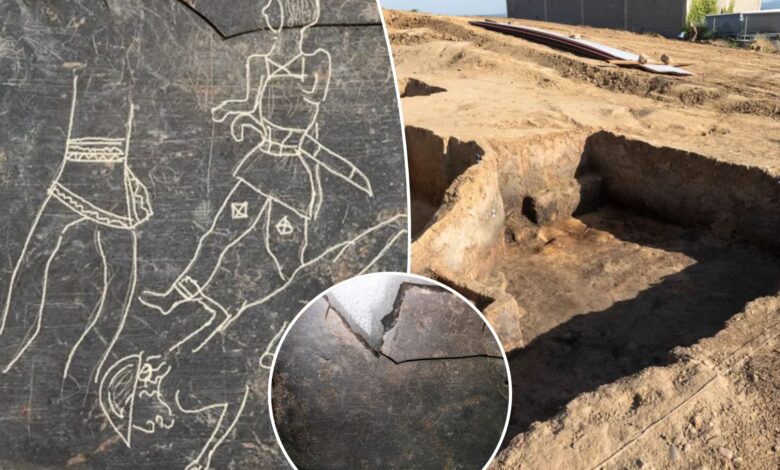Ancient stone from ‘lost’ civilization discovered from 600 B.C.

Can you dig it?
Archeologists in Spain have recently uncovered an ancient rock slab with an alphabet inscribed that predates the Rosetta Stone by roughly 400 years.
The discovery in southwest Spain is believed to be associated with the ancient, Paleo-Hispanic civilization of Tartessos and is only the third piece of evidence of an alphabet among the people, according to Fox News.
It is considered a “lost” society due to a lack of remnants throughout the centuries.
Discovered at an archeological site in Casas del Turuñuelo of the Badajoz province, the eight-inch rock is believed to have been chiseled as early as 600 B.C. That is hundreds of years ahead of the Rosetta Stone in Egypt from 196 B.C.
The Spanish National Research Council (CSIC) identified “what appears to be a sequence of 21 signs drawn within the framework of the tablet on which figures were also found of warriors.”
University of Barcelona researcher Joan Ferrer i Jané said that “other strokes compatible with signs of a known sequence [were also seen].”
“This alphabet has 27 signs and is the only complete one we know to date,” he added, saying this “would provide a lot of information.”
However, the artifact, missing a triangular shard on one of its sides, appears to be incomplete.
“At least 6 signs would have been lost in the split area of the piece,” said Jané.
Adding to the mystery, there could even be potential to uncover more parts of the ancient language within the missing piece.
“If it were completely symmetrical and the signs completely occupied three of the four sides of the plate it could reach 32 signs.”




